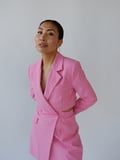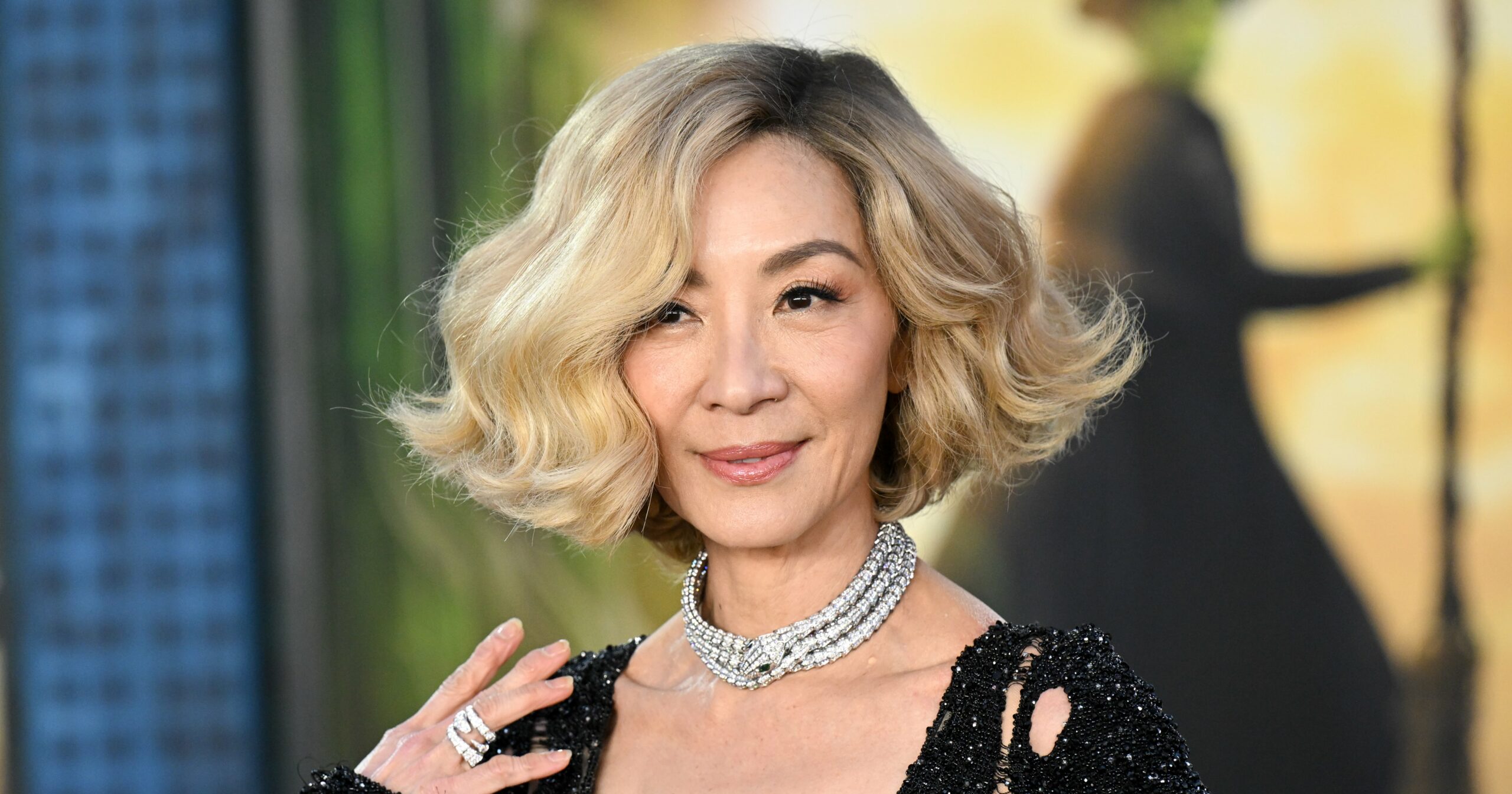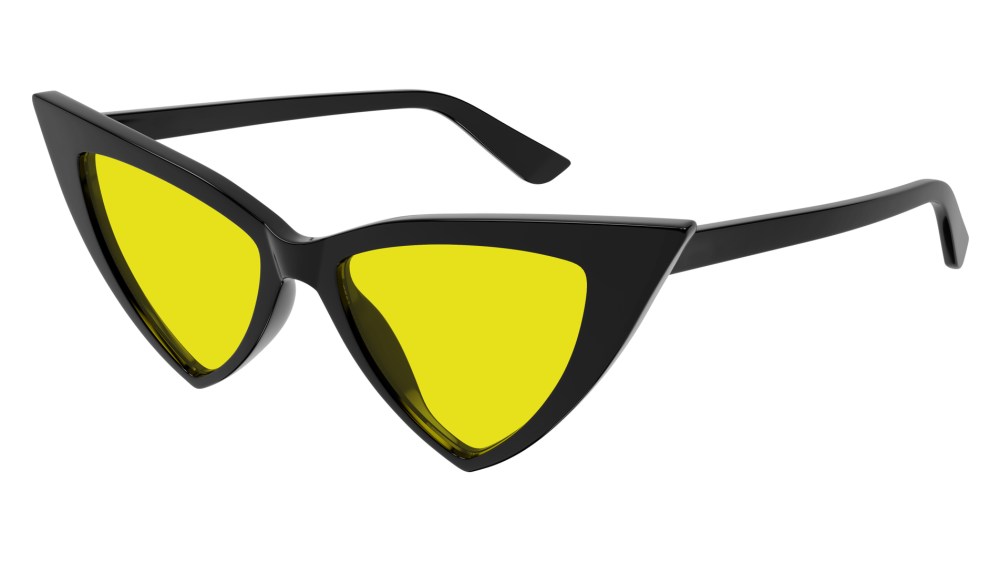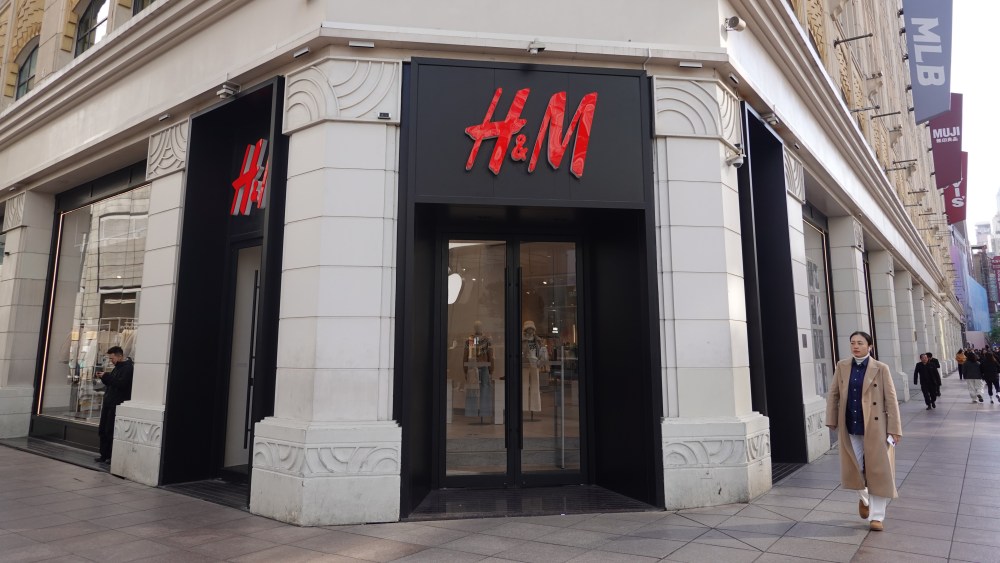If there’s one thing on TikTok I’ll never scroll past, it’s Anna Kai applying her blush or dabbing on lip gloss because I know I’m in for some drops of dating wisdom. Known as Maybe Both on social media, where she’s garnered almost three million followers collectively, the content creator often gets real about her experiences with “Chads” from her past as she gets ready for the day. She ends every video placing her product on her vanity – her signature – doling out a relatable takeaway and tough-love relationship advice.
As Kai puts it, her TikTok success was “completely unplanned.” She was pursuing an acting career in NYC until the pandemic hit, and she pivoted to blogging and social media, posting about home decor and fashion “to no avail.” After a TikTok coach recommended she talk to the camera and tell a story, she thought, “What am I going to say? What am I good at?” until she realized: “Oh, I dated a lot.”
It was never my intention to be a dating influencer, but in retrospect, I was like, “Why wasn’t I earlier?”
That first video of her doing her makeup while talking about a guy she dated instantly went viral. “It was never my intention to be a dating influencer, but in retrospect, I was like, ‘Why wasn’t I earlier?’ I talk about this with my girlfriends all the time, but you don’t realize that other people are going to find it interesting, too,” she tells PS.
She exudes the same big-sister energy from social media before me on a Zoom call in mid-July, where we chat about our respective Asian American upbringings and the complexities of dating as an Asian American woman, and I took the opportunity to pick her brain for advice on my own love life.
Growing up as the daughter of Chinese immigrants in a predominantly white suburb of Philadelphia, Kai was taught to assimilate into American culture as much as possible, and as a result, always felt very different. In fact, Maybe Both was born out of embracing the “in-between” of feeling too American to be considered Chinese and too Chinese to be considered American. “I spent all of my childhood, up until I left for college at 18, wanting to look like everyone else,” she says. “I didn’t feel like I fit in when I was growing up, and I think I had a lot of anger because of that, that I didn’t really unpack until my twenties.”
Once she started attending NYU, however, she met and became friends with Asian Americans who had similar creative interests and experiences. But in her dating life, she gravitated towards relationships with white men, “though not exclusively.”
I remember many guys who would say to me, “You’re the first Asian girl I’ve dated.” I’m like, “OK, am I supposed to feel special?”
Dating is hard enough, but race often adds an extra layer of complexity, which includes navigating fetishization and microaggressions. “I remember many guys who would say to me, ‘You’re the first Asian girl I’ve dated.’ I’m like, ‘OK, am I supposed to feel special?’ Nobody would ever ask a white woman, ‘Do you only date white guys?’ But for some reason, people felt like they had a right to ask me, ‘Do you typically date white guys or do you typically date Asian guys?’ It’s trying to figure out who I am without actually getting to know me.”
As Asian women, we often face this extra scrutiny when it comes to who we choose to date. If we date fellow Asian Americans, we’re not open-minded. If we date white men or other men of color, we’re OK with being fetishized or we hate our own culture. On social media, Kai often faces criticism from trolls who say she has “daddy issues” or “of course” has a white husband.
For Kai, she believes her upbringing informed her racial dating preferences. “The predominant man in high school for me was always a white kid. I think a lot of our dating preferences are shaped by our childhood and what we were exposed to growing up,” she says. “At the end of the day, everybody has their preferences, and I’m OK with that. I think it crosses the line into fetishization when you diminish the person for the group that they’re in, like, ‘You’re Asian, so you must be like X, Y, Z.'”
She adds, “I did have a couple long-term relationships with Asian men, but I mostly dated white men. I now know that a lot of them did not work out because at the end of the day, I am very culturally Asian, and it really took a special human, my husband, to make it work.” Kai has been married to her husband, Dave, since September 2022. “He is probably the only person I could have married, which is why I married him,” she says. She found that they connected on what she considered to be more traditionally Asian values around family and finances.
Still, Kai continues to unpack that internalized stigma and navigate the struggles that come with being in an interracial relationship. At her bridal shower, she remembers a family friend of her husband’s gifting them a painting of cherry blossoms “because it’s got the Asian flowers on it.” At their wedding, she recalls a guest congratulating an elderly Asian man – who wasn’t her father – on his daughter’s nuptials. “All of that stuff, my husband gets it and understands why that’s offensive and ignorant,” she says. “But I do understand why people want to date and marry people from their own culture, because it’s just less exhausting,” she adds, referring to the already difficult dating landscape.
On the surface, Kai’s content might appear to be all about the dating lessons she learned the hard way, whether she’s sharing how to find the right person, how to know when to leave a relationship, or how to avoid fuckboys. But ultimately, she underscores the same message of self-love in all of her dating stories.
Case in point: for my last question, I ask Kai for her number-one piece of advice for getting over a tough breakup or situationship.
Her answer: “When you get out of a relationship, you feel like the least valuable human. You feel unwanted. So get out there and remind yourself how you’re valuable and how you’re valued outside of that relationship.”
Yerin Kim is the features editor at POPSUGAR, where she helps shape the vision for special features and packages across the network. A graduate of Syracuse University’s Newhouse School, she has over five years of experience in the pop culture and women’s lifestyle spaces. She’s passionate about spreading cultural sensitivity through the lenses of lifestyle, entertainment, and style.



